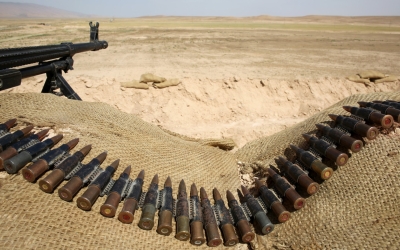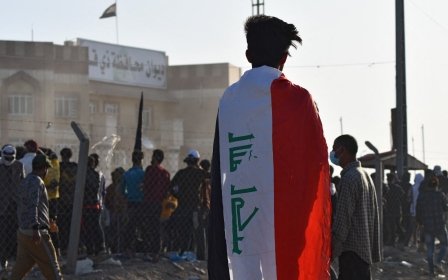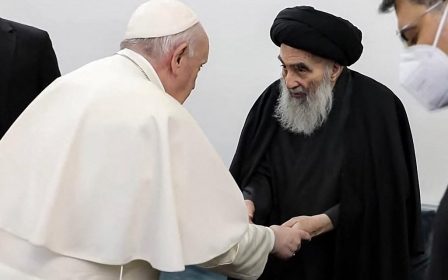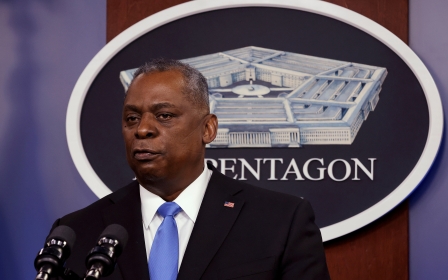EXCLUSIVE: Iraq paramilitaries agree to stop attacks on US if Kadhimi demands withdrawal
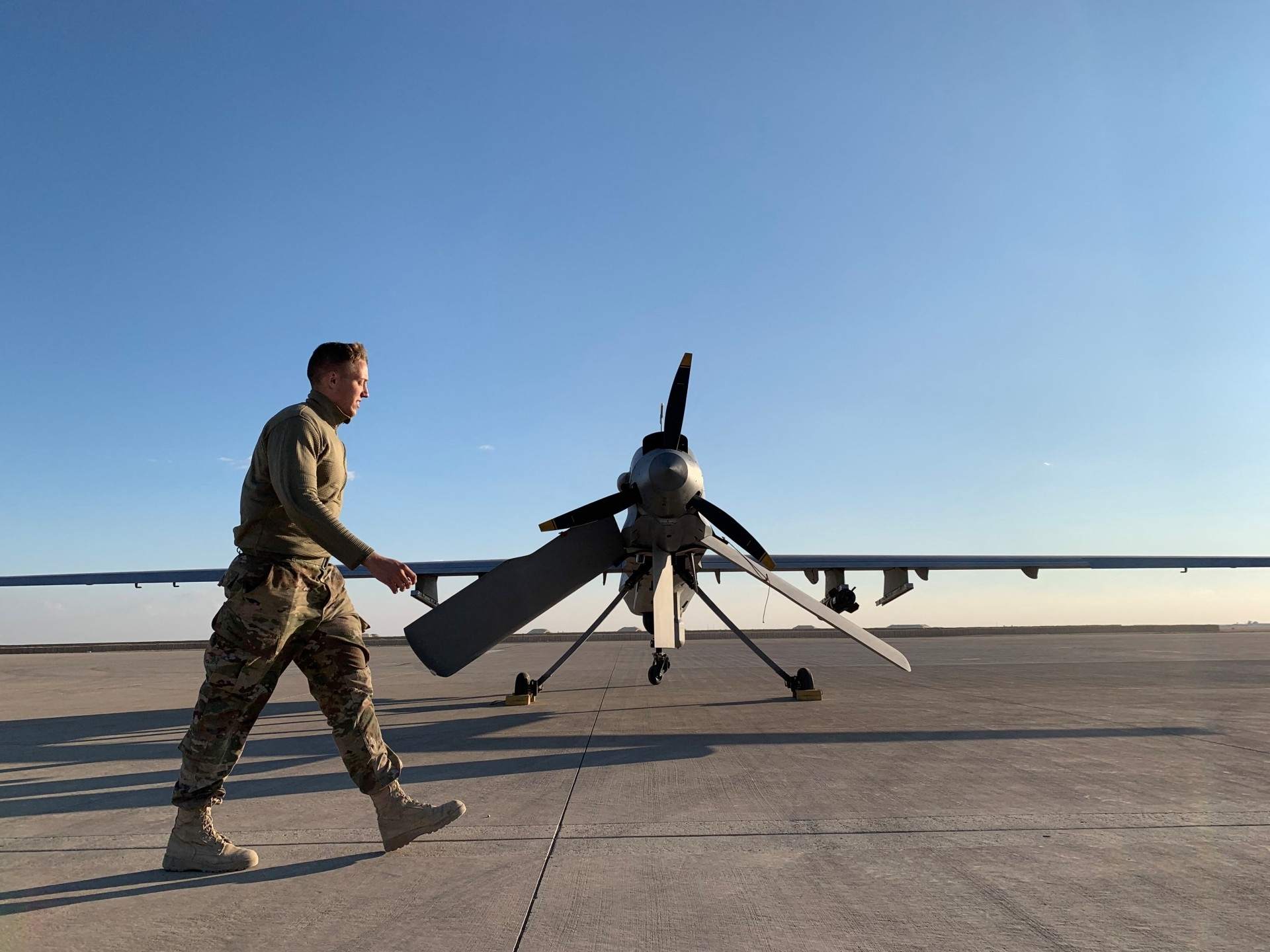
After frantic meetings in Baghdad, Beirut and Tehran, Iranian-backed Iraqi paramilitaries have agreed to stop attacks against US forces in Iraq on the condition that Iraqi Prime Minister Mustafa al-Kadhimi formally demands an American withdrawal, officials and faction commanders told Middle East Eye.
Kadhimi must tell Washington that the pullout has to be completed within 12 months, they added. Sources said it is likely that Kadhimi will comply and make the formal request.
On 1 March, the armed factions announced the end of an unofficial armistice with US forces in Iraq that had largely held since October, despite a few violations.
'If any of these parties violates the agreement, then this means that it is a personal act and the perpetrator is considered outside the consensus, and it is dealt with on this basis'
- Iraqi negotiator
Previously, attacks on US troops and their western allies in the anti-Islamic State (IS) group military coalition had been routine, as the paramilitaries sought to push the United States from Iraq.
However, a rocket attack on a military base in Erbil last month prompted the US to launch air strikes on a position just inside the Syrian border occupied by Kataeb Hezbollah, the paramilitary group most hostile to Washington, and Kataeb Sayyid al-Shuhada, a smaller Shia faction.
New MEE newsletter: Jerusalem Dispatch
Sign up to get the latest insights and analysis on Israel-Palestine, alongside Turkey Unpacked and other MEE newsletters
Although the Iraqi armed factions declared that they had nothing to do with the Erbil attack, which killed a military contractor and wounded nine others, including a US soldier, the Pentagon pointed the finger of blame at Kataeb Sayyid al-Shuhada.
The tit-for-tat attacks between the two sides resulted in a 3 March raid on Ain al-Assad, a base in western Anbar province that hosts the largest US presence, with at least 10 short-range BM-21 “Grad” missiles launched at the troops there.
The Iraqi military said the attack did not cause any casualties, but the Pentagon announced the next day that a US contractor had died after suffering a heart attack during the raid.
Kadhimi's embattled government, which has sought to limit the paramilitaries’ power and been targeted by them in return, has attempted to limit the fallout from such skirmishes and buy time for Washington and Tehran to begin negotiations to resume the 2015 nuclear deal, hoping they will calm the region.
This latest de-escalation agreement was made by a group of faction commanders known as the Coordinating Committee for the Resistance Factions, and the Iraqi government, sources said.
It stipulates that all attacks must cease and in return Kadhimi will send a letter to the United Nations Security Council asking for the US-led coalition’s mission in Iraq to end, two of the parties that concluded the agreement told MEE.
Iranian and Lebanese parties, as well as an international organisation operating in Iraq, helped bring the sides together, "one acting as a guarantor and another as a negotiator", as an Iraqi official put it.
"Currently, all concerned parties [leaders of the Iranian-backed armed factions and the US forces] have agreed to calm," one of the Iraqi negotiators told MEE.
"If any of these parties violates the agreement, then this means that it is a personal act and the perpetrator is considered outside the consensus, and it is dealt with on this basis."
Middle East Eye has asked the US-led coalition for comment, but received no response by the time of publication.
This article is available in French on Middle East Eye French edition.
Middle East Eye delivers independent and unrivalled coverage and analysis of the Middle East, North Africa and beyond. To learn more about republishing this content and the associated fees, please fill out this form. More about MEE can be found here.


